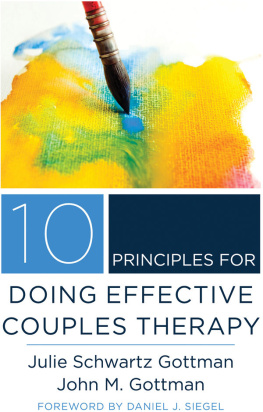Thank you for downloading this TED Books eBook.
Join our mailing list and get updates on new releases, deals, bonus content and other great books from TED Books and Simon & Schuster.
C LICK H ERE T O S IGN U P
or visit us online to sign up at
eBookNews.SimonandSchuster.com
We hope you enjoyed reading this TED Books eBook.
Join our mailing list and get updates on new releases, deals, bonus content and other great books from TED Books and Simon & Schuster.
C LICK H ERE T O S IGN U P
or visit us online to sign up at
eBookNews.SimonandSchuster.com

Simon & Schuster, Inc.
1230 Avenue of the Americas
New York, NY 10020
www.SimonandSchuster.com
Copyright 2015 by Barry Schwartz
All rights reserved, including the right to reproduce this book or portions thereof in any form whatsoever. For information, address Simon & Schuster Subsidiary Rights Department, 1230 Avenue of the Americas, New York, NY 10020.
TED, the TED logo, and TED Books are trademarks of TED Conferences, LLC.
First TED Books hardcover edition September 2015
TED BOOKS and colophon are registered trademarks of TED Conferences, LLC
SIMON & SCHUSTER and colophon are registered trademarks of Simon & Schuster, Inc.
For information about special discounts for bulk purchases, please contact Simon & Schuster Special Sales at 1-866-506-1949 or .
For information on licensing the TED Talk that accompanies this book, or other content partnerships with TED, please contact .
Jacket and interior design by: MGMT. design
Jacket photo courtesy of iStock
Library of Congress Cataloging-in-Publication Data is available.
ISBN 978-1-4767-8486-1
ISBN 978-1-4767-8487-8 (ebook)
TABLE OF CONTENTS
To Ruby, Eliza, Louis, and Nico .
May your lives be full of opportunities for good work.
The ideas of economists and political philosophers, both when they are right and when they are wrong, are more powerful than is commonly understood. Indeed the world is ruled by little else. Practical men, who believe themselves to be quite exempt from any intellectual influences, are usually the slaves of some defunct economist.
John Maynard Keynes
INTRODUCTION
The Crucial Question
Why do we work? Why do we drag ourselves out of bed every morning instead of living lives composed of one pleasure-filled adventure after another? What a silly question. We work because we have to make a living. Sure, but is that it? Of course not. When you ask people who are fulfilled by their work why they do the work they do, money almost never comes up. The list of nonmonetary reasons people give for doing their work is long and compelling.
Satisfied workers are engaged by their work. They lose themselves in it. Not all the time, of course, but often enough for that to be salient to them. Satisfied workers are challenged by their work. It forces them to stretch themselvesto go outside their comfort zones. These lucky people think the work they do is fun, often in the way that doing crossword puzzles or Sudoku is fun.
Why else do people work? Satisfied people do their work because they feel that they are in charge. Their workday offers them a measure of autonomy and discretion. And they use that autonomy and discretion to achieve a level of mastery or expertise. They learn new things, developing both as workers and as people.
These people do their work because its an opportunity for social engagement. They do many of their tasks as part of teams, and even when theyre working alone, there are plenty of opportunities for social interaction during works quiet moments.
Finally, these people are satisfied with their work because they find what they do meaningful. Potentially, their work makes a difference to the world. It makes other peoples lives better. And it may even make other peoples lives better in ways that are significant.
Of course, few occupations have all these features, and none, I suspect, have all these features all the time. But features of work like these are what get us out of the house, get us to bring work home with us, encourage us to talk about our work with others, and make us reluctant to retire. We wouldnt work if we didnt get paid, but thats not at the core of why we do what we do. And in general, we think that material rewards are a pretty bad reason for working. Indeed, when we say of someone that hes in it for the money, we are not merely being descriptive; were passing judgment.
These diverse sources of satisfaction from work raise some very big questions. Why is it that for the overwhelming majority of people in the world, work has few or none of these attributes? Why is it that for most of us, work is monotonous, meaningless, and soul deadening? Why is it that as capitalism developed, it created a model for work in which opportunities for the nonmaterial satisfactions that might come from itand inspire better workwere reduced or eliminated? Workers who do this kind of workwhether in factories, fast-food restaurants, order-fulfillment warehouses, or indeed, in law firms, classrooms, clinics, and officesdo it for pay. Try as they might to find meaning, challenge, and room for autonomy, their work situation defeats them. The way their work is structured means that there really is little reason to do these jobs except for pay.
According to a massive report published in 2013 by Gallup, the Washington, D.C.-based polling organization, there are twice as many actively disengaged workers in the world as there are engaged workers who like their jobs. Gallup has been measuring international employee satisfaction for almost two decades. In total it has polled 25 million employees in 189 different countries. The latest version gathered information from 230,000 full-time and part-time workers in 142 countries. Overall, Gallup found that only 13 percent of workers feel engaged by their jobs. These people feel a sense of passion for their work and they spend their days helping to move their organizations forward. The vast majority of us, some 63 percent, are not engaged. We are checked out, sleepwalking through our days, putting little energy into our work. And the rest of us are actively disengaged, actually hating our jobs. In other words, work is more often a source of frustration than one of fulfillment for nearly 90 percent of the worlds workers. Think of the social, emotional, and perhaps even economic waste that this statistic represents. Ninety percent of adults spend half their waking lives doing things they would rather not be doing at places they would rather not be.
The questions Gallup asks capture many of the reasons for work I just listed. The opportunity to do our work right, to do our best, to be encouraged to develop and learn, to feel appreciated by coworkers and supervisors, to feel that our opinions count, to feel that what we do is important, and to have good friends at work are all aspects of work that the survey taps. And for the overwhelming majority of people, work falls shortvery short. The question is why? This book will offer an answer.
The False Rationale
For more than two centuries, we have absorbed, as a society and as individuals, some false ideas about our relationship to work. It is a long-accepted tenet of economics, buttressed by some theories from psychology, that if you want to get someonean employee, a student, a government official, your own childto do something, you have to make it worth his or her while. People do things for incentives, for rewards, for money. You can see this view operating in the carrot and stick approach that has dominated efforts to solve the worlds recent financial crisis. To prevent a financial meltdown from happening again, people argued, we needed to replace the dumb incentives that led to it with smarter ones. We had to get incentives right. Nothing else really mattered. This idea animated the inventor of the free market, Adam Smith. In The Wealth of Nations , published in 1776, he wrote that:
Next page



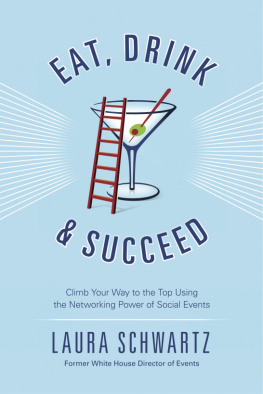
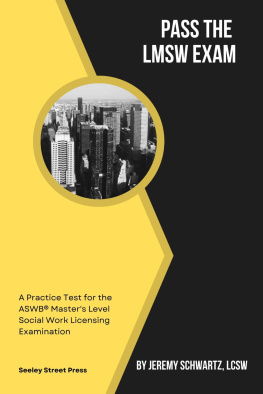
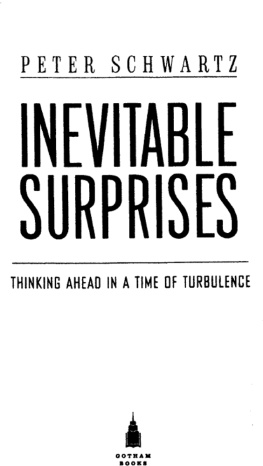
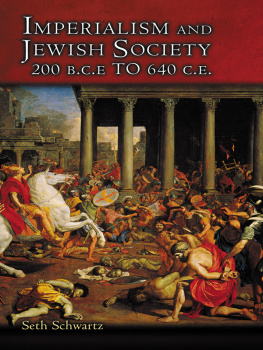
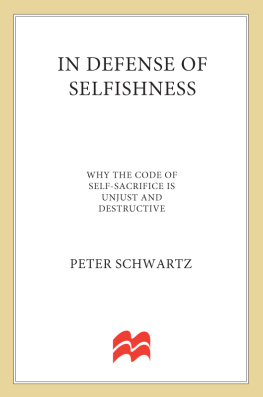
![Charles Schwartz [Charles Schwartz] - Who Changes Everything : Unlock The Secret That Will Transform Your Life](/uploads/posts/book/129962/thumbs/charles-schwartz-charles-schwartz-who-changes.jpg)
